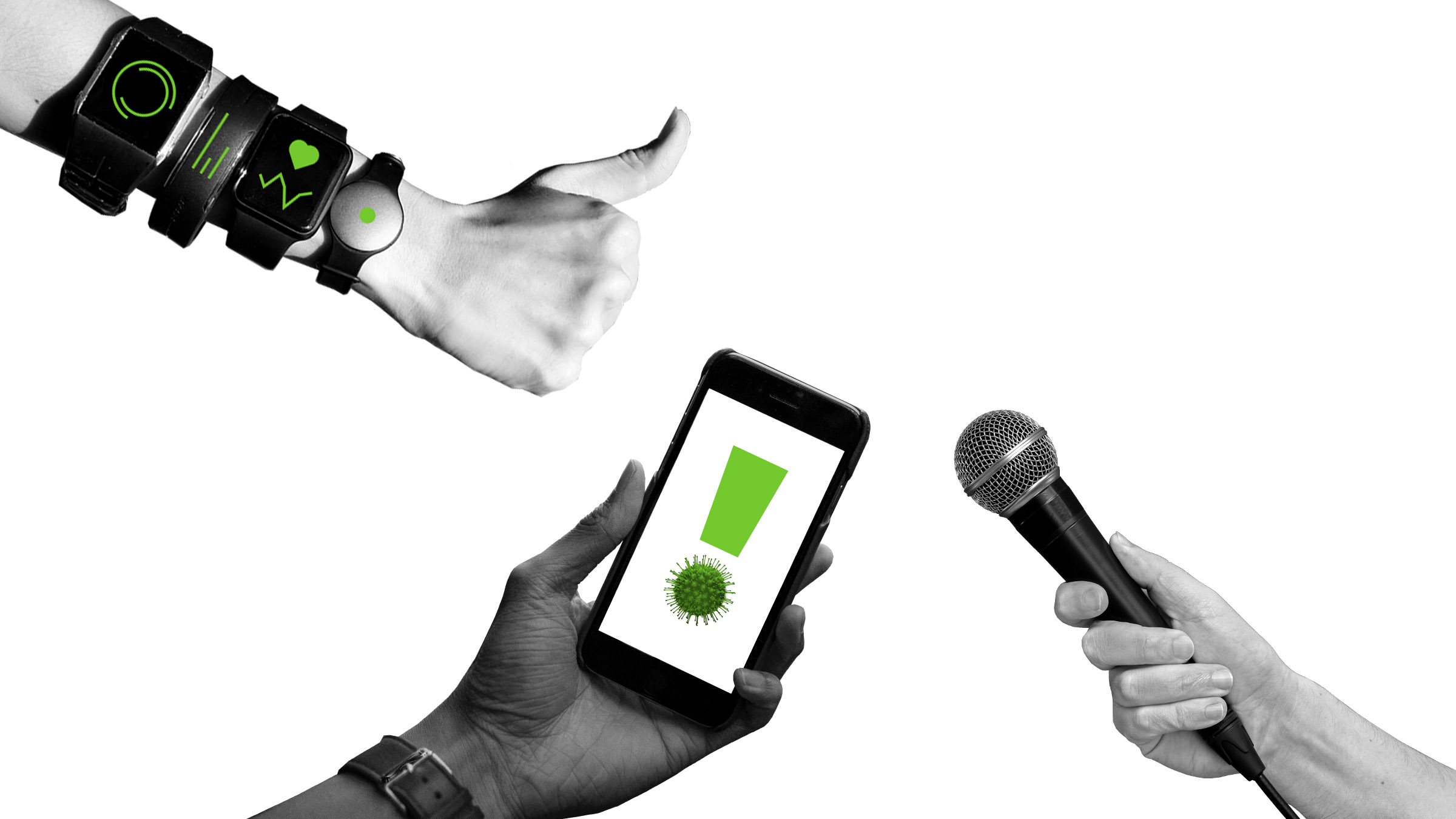Finns enthusiastically use smart devices for the self-measurement of health data compared to the French, Dutch and Germans. A total of 15 per cent of Finns have used smart devices for health data measurement for more than five years, which is more than in the reference countries. Nearly half of Finns (48 per cent) would also be prepared to share their health data with research programmes, for example.
The survey was conducted by Kantar TNS Oy in the Netherlands, France, Germany and Finland in June and July 2020. More than 4,000 respondents took part, with about 1,000 people represented in each country. Sitra’s Senior Lead Tiina Härkönen says that Finns’ positive attitude towards data and technology should be turned more effectively into an asset.
“When looking at many indicators, Finland is already ahead of other countries when it comes to individuals’ positive attitude towards technology, people’s digital skills and related services offered by society. That is why especially here in Finland we should invest in the creation of trust-based, human-driven data economy Human-driven data economy A model that recognises the importance of people and their needs as being fundamental to the working of a data economy. Individuals are not seen as mere objects from which to gather information but instead as active participants whose individual and legitimate needs are respected and heard in the data economy field. Open term page Human-driven data economy services. On the basis of the survey, Finland and Finnish companies have good preconditions for becoming the new, fairer ‘Silicon Valley’ of the 2020s,” says Härkönen.
Well-being data measurement has led to lifestyle changes
Half of all the survey respondents use various well-being measurement instruments or applications. The use of devices, such as activity trackers and smart rings, has increased especially during the past two years. Measurement is further increasing: a fifth of the device users had started their use during the six months prior to the survey.
Those who currently measure their well-being data feel that the data is very useful for them. A total of 40 per cent of the respondents said that they have become motivated to do more/better exercise and nearly a fifth, 19 per cent, had adopted healthier eating habits.
There is an urgent need to find solutions – the coronavirus crisis has highlighted the tensions between technology and data use
In the past few months, the perception of Finns as a nation with a positive attitude towards digital development and technology has become even stronger as the result of the popularity of Koronavilkku, the coronavirus tracking application. By the end of September, more than two million Finns had downloaded the application. This is a much larger share of the population than in most countries that have a tracking application in use.
Coronavirus tracking and the self-measurement of well-being are in many ways linked to global questions about the use of data and the concentration of technological development. According to Sitra’s assessment, one of the megatrends that will have the strongest impact on the world is the increasing embedding of technology within our daily lives. For example, this development could lead to tensions between who gets to decide on technological development and on whose terms society and the services produced by it are developed from now on. So far, the majority of the data produced by individuals has been concentrated in the hands of only a few international technology giants. The coronavirus crisis appears to have intensified these tensions even further.
A practical example is the discussion in the past few weeks about national sovereignty, and how that is affected by the need for each country to build a coronavirus tracking application largely based on Google’s and Apple’s solutions. More examples highlighting the crucial role of data use and information flow in the management of the epidemic were presented in the recently published results of a pilot project launched and funded by Sitra, which indicate that current healthcare operating methods, the flow of information and customer communications practices will be insufficient if the epidemic becomes worse.
“The positive attitude of people in Finland towards technology is a solid foundation upon which to develop solutions for the management of the coronavirus epidemic,” says Jaana Sinipuro, Director of Sitra’s IHAN project. “Finland can and must lead the way in the creation of rules, technological solutions and success stories for the fair data market of the 2020s. We are in an advantageous position to solve problems that affect the entire world.”
The European Wearables survey
Sitra commissioned an online survey to investigate the use of smart devices intended for self-measurement as well as people’s attitudes towards the data produced by these devices and its use. The survey did not cover home care or medical care devices but mainly focused on the use of applications and devices, such as activity trackers, smart rings and smartphones. More information about the results can be found in the summary article and the full set of research data.
The survey was conducted as part of Sitra’s IHAN project, which lays a foundation for a fair data economy Fair data economy The part of the economy that focuses on creating services and data-based products in an ethical manner. Fairness means that the rights of individuals are protected and the needs of all stakeholders are taken into account in a data economy. Open term page Fair data economy . In this kind of economy, the successful digital services of the future are based on trust and create value for everyone.


















Recommended
Have some more.